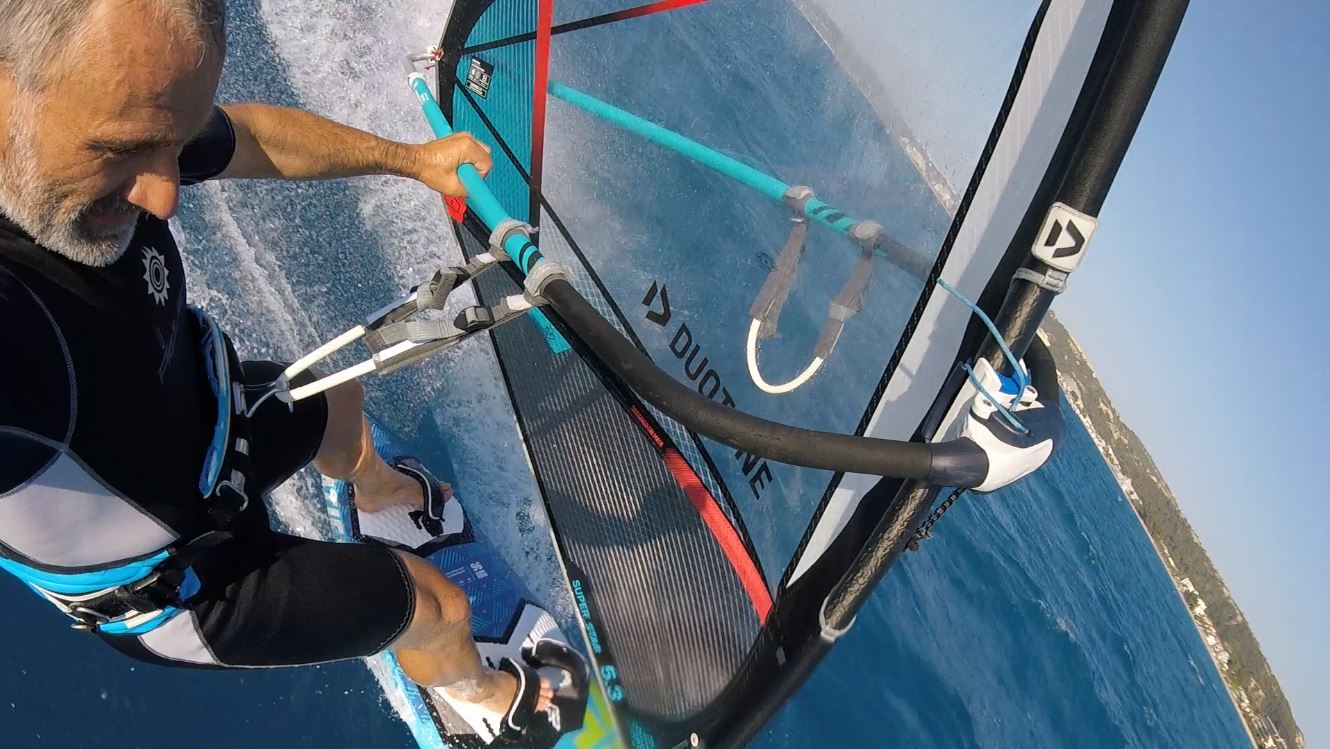– Kalimera!, I say to the receptionist at the hotel Nathalie. I wonder if this is what the construction workers said 2,300 years ago as they arrived the site erecting the Colossus of Rhodes. It was one of the Seven Wonders of the Ancient World.
My wife and two of our kids never got to Albania this summer as planned. A pilot strike forced us to change plans, so we ended up in Rhodes in stead. We drove from Oslo to Hamburg and flew from there.
On the plain, two things come to my mind. First, the 1995 World Cup regatta in Paros where I slept in my granddad’s cotton tent. I recall listening to the party music from Punda beach that the offshore wind brought to sea when I was windsurfing. Second; What is the state of of the Mediterranean sea?
The wind and the myths
As we approach Rhodes, I think about the Phoenicians, a people of maritime traders. Very competent sailors, zig-sagging the Eastern Mediterranean in the Late Bronze Age (ca. 1600–1200 B.C.). Confined to a narrow coastal strip with limited agricultural resources, maritime trade was a natural development for these people.
The people who lived around the Mediterranean Sea began exploring this nearly landlocked sea several thousand years ago. Sailors from Egypt, Phoenicia and Crete mapped the regional coastlines to establish some of the earliest trading routes. Early Mediterranean civilizations, including the Greeks, have passed down many myths that include gods and goddesses who ruled over nature, such as Poseidon with his triton. Windsurfing these waters has a special flavor.
The Meltemi wind gently strikes the pebble shores of the northern tip of the island as we arrive. After unpacking our bags, I walk up to Pro Center Rhodes and rent a board and a sail. The 5.3 Duotone works fine and I get my share of windsurfing. Some winging people are out and they get higher speed than I have seen before. Apparently it’s because they have started to use windfoils.
Exploring and protecting
I search “marine life Aegean sea” and Pierre-Yves Cousteau, the youngest son of legend Jacques-Yves Cousteau, appears in the search results. He has inherited his father’s passion for the ocean. Santorini is his “home island” and marine life here is badly hurt.
The next day, we travel to Lindos, one of the most popular beaches on Rhodes island. After climbing the acropolis in 35 degrees celsius we cool down in the water. I put on my goggles and take a look at the surrounding ocean bed. Not much life there. Similar to images of dead seas elsewhere, but I can’t find reports for that specific area and if this is the natural environment or not.
25 years after Cousteau’s famous book The silent world, The Barcelona Convention that aims to protect, preserve and enhance the marine environment in the Mediterranean entered into force. Some of the efforts to get there can be monitored through the Plan Bleu dashboard map. It has dozens of filters from submarine cables, agricultural use of fertilizers, CO2 emissions per capita and plastic bag policies.
How is it going?
Thinking about the lifeless Lindos seabed, I search over fishing and finds that the entire Northern part of the Mediterranean Sea from Gibraltar in the West to Syria in the East suffer from over fishing. No surprise as the Mediterranean basin is home to 7 per cent of the world’s population.
The level of dissolved oxygen is important with regards to water quality and marine life. The Eastern Mediterranean is ok, whereas the Western part is mostly red and orange (too high levels).
What about offshore wind farms? The steady wind in the Aegean Sea must provide good conditions? Well, Greece has some 58 projects planned, but none are in the build phase. Moving away from Russian fossile fuel is an issue in Greece as in most other European countries, and new plans to invest in floating wind farms are emerging.
Hope spot
Coordinator of UNEP/Mediterranean Action Plan Tatjana Hema, stated the following at the Ocean conference in Lisbon this June:
This region concentrates many of humanity’s current challenges and of the issues that undermine the sustainability of the global ocean.
Success in the Mediterranean region will reverberate well beyond the basin and send a much-needed signal of hope that humanity can overcome differences and work together for the common objective of protecting and living in harmony with the ocean and nature in the broadest sense.
It’s true. If the EU can accelerate marine protection, let’s hope this can provide solutions for other regions as well.
As we leave Rhodes, I read about the wildfires in Southern Europe. I also read that Mojib Latif, one of Germany’s leading climate scientists warns that the world is steadily heading towards 3 degrees heating.
I look at the kids and cross my fingers that we can build another seven wonders of the zero emissions world.
Cover photo: Lindos town seen from sea level.









